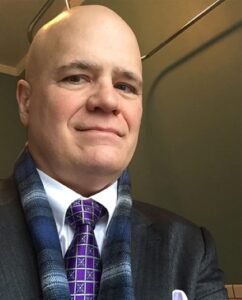 For over 20 years, I have helped North Carolinians recover from opioid use disorder (OUD) in my role as an addiction doctor at Solas Health, a network of outpatient addiction treatment centers in North Carolina.
For over 20 years, I have helped North Carolinians recover from opioid use disorder (OUD) in my role as an addiction doctor at Solas Health, a network of outpatient addiction treatment centers in North Carolina.
The last thing this vulnerable population needed was an influx of even more deadly drugs to arrive, but that’s just exactly what’s happened. Nitazene compounds, like protonitazene and isotononitazine, have been cropping up in the illicit drug market in recent years. Known as “Frankenstein opioids,” nitazines are synthetic opioids that are between 2 and 40 times stronger than fentanyl. Nitazines come in powdered and pill form, and are typically combined with other drugs like fentanyl, cocaine, heroin, and methamphetamine. Fentanyl had already fueled an unprecedented number of drug overdose deaths in the U.S., and these newer synthetic opioids are making the situation worse.
Another drug which is been featured on the news in almost every major city is xylazine, also known as “tranq dope.” You may have seen viral videos of groups of people stooping over on the streets of our cities. These haunting images are often the result of xylazine being consumed by the opioid-using population of a given city.
Xylazine is actually an animal tranquilizer that is not an opioid. As such, it does not respond to the nasal spray Narcan, which is an intervention that has reversed the overdoses and saved the lives of countless opioid users. Tranq dope also is known for causing unsightly abscesses in the arms and legs of people who inject it.
We Must #ExpectFentanyl and Teach Our Kids that #OnePillCanKill
Sadly, the population affected by opioid use disorder (OUD) continues to get younger every year, with our nation’s teens falling victim to drug abuse at a staggering rate. Accidental overdose is the leading cause of death for people aged 18 to 45. Research conducted by UCLA shows that the rate of overdose deaths among teenagers in the United States nearly doubled in 2020, the first year of the COVID pandemic, and increased by an additional 20 percent in the first half of 2021 compared to the 10 years preceding the COVID-19 pandemic.
Many bereaved parents had no idea their children were ‘at-risk’ until it was too late. Others have lost their teen to fentanyl poisoning when their teen procured a counterfeit drug like Adderall or Xanax on social media, and it had fentanyl or another opioid mixed in. Hence the viral #ExpectFentanyl campaign which urges parents to have the difficult conversation before it’s too late. The DEA has created a #OnePillCanKill social media campaign to spread awareness that a single use can be deadly when it comes to illicit drugs.
I know from my personal experience as a father that it can be daunting to connect with your teen over this type of sensitive subject. To have this conversation, there are many resources, like the “Drop the F bomb” website which has a detailed article about “How to Talk to Your Kids about Fentanyl.”
Getting Help for a Loved One That is Using Drugs
If you or someone you love is using drugs, you should act immediately, due to the danger they may be in. This can also be a difficult conversation, but fortunately, there is a ton of help available in the form of trained family and drug and alcohol counselors. It’s always helpful to talk with a behavioral health professional about your specific situation, and the counselor will likely have insight and tools to help you intervene on your loved one’s drug use.
To get help, you can start by visiting The Substance Abuse and Mental Health Association (SAMHSA) Treatment Locator, which is a directory that has a helpline that is staffed 24/7. That line can be reached by calling 1-800-662-HELP (4357).
If you’re in North Carolina, you can contact Solas Health at (910) 295-7246, or by visiting https://solas.health/
Let’s take proactive action so that our youth can reap the benefits of addiction prevention today.
Author’s Bio:
Dr. Francis Corrigan has been treating opioid addiction and providing pain management for over 20 years in North Carolina at Solas Health.


